#viola the rabbit
Explore tagged Tumblr posts
Text
have some more pwp art where i tried out a more anthro/furry style RAHHHHHHHH (slight blood warning for the sixth one, and a mild horror warning for the last one!)


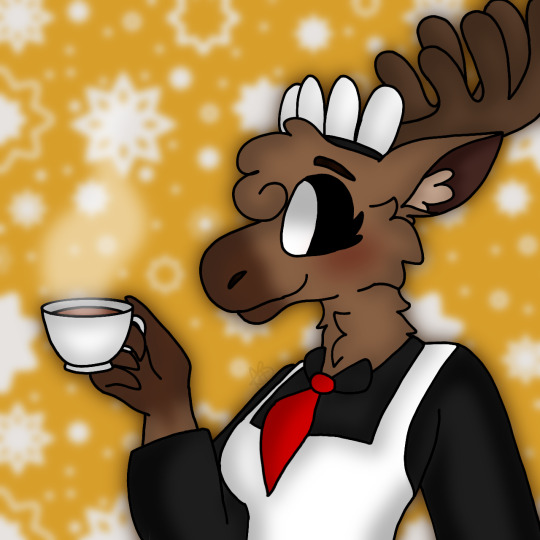
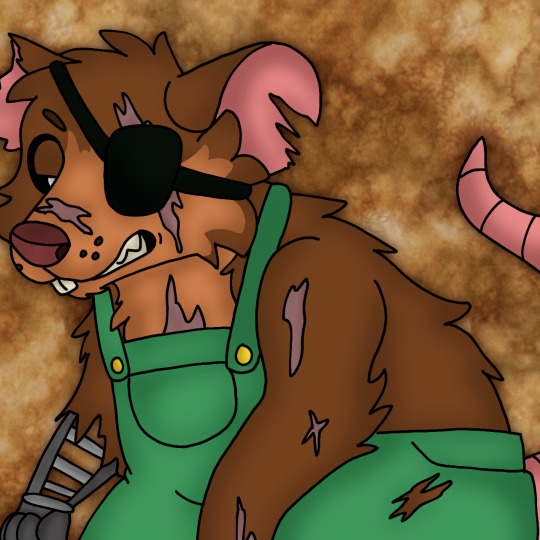

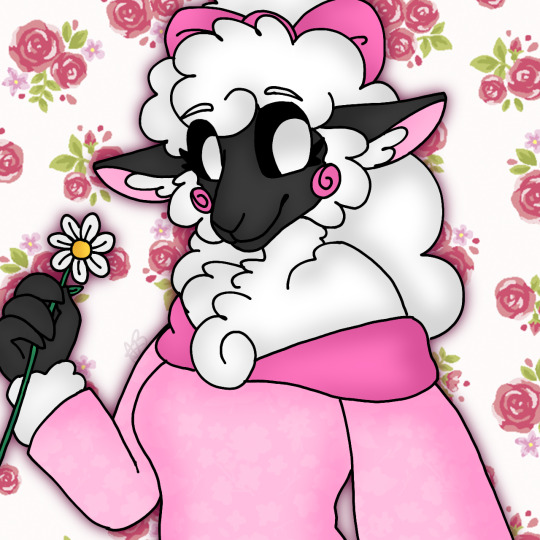
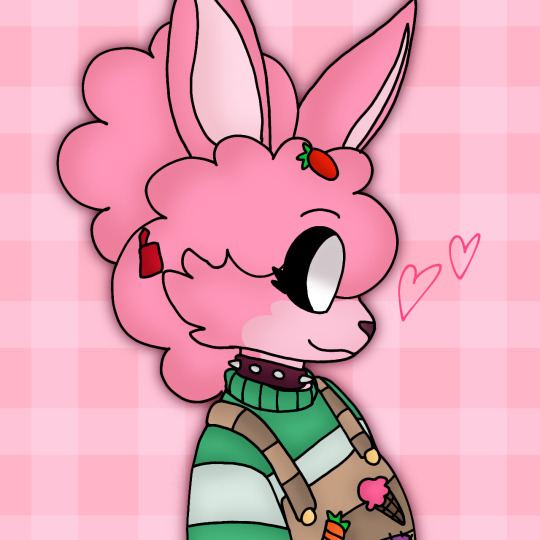


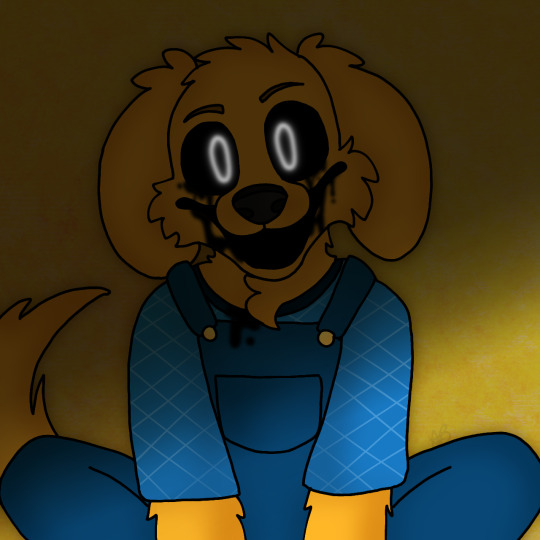
#playtime with percy#percy poodle#pal percy#charlie the cat#charlie cat#farmer felix#mother moose#rowen rat#sunny sheep#viola the rabbit#truman pwp#yellow mutt#fanart#blood warning#digital art
42 notes
·
View notes
Text

knife rabbit
841 notes
·
View notes
Text

Jellycat of the Day | 1st December 2024
↳ Bashful Viola Bunny (small)
#bashful viola bunny#jellycat#jellycats#bashful bunny#bashful bunnies collection#rabbit plush#bunny plush#soft toy#stuffed animal
42 notes
·
View notes
Text
i think it's fun to entertain the notion that Tula has prey-animal body language in contrast to other stoats being more overtly Predator
#N posts stuff#like when other stoats would be doing like. Threat Displays tula is there with the whites of her eyes showing looking for danger#i had the thought to put this in an author's note but i don't like it when those get too long#Tula doesn't really do a lot of Posturing; off the top of my head she usually acts Reactively in fights to threats from opponents#in ways that are very Abrupt -- like she isn't telegraphing anythign bc it's borderline instant trigger. like Viola getting shocked#or Sybil getting her neck snapped.. Tula isn't posturing she's almost placating but once there's a stand out threat she's There#getting rid of it as quickly as possible; so I like playing with that in like. those other stoats Can't read Tula at all#because her frightened/angry Body Language isn't pinned ears or arched back it's like nervous twitchy ears and eyes and tail of like#rabbit that is about to Bolt; and then instead she sprints directly towards the threat and tears out its throat. i think it's fun.#d20: stupendous stoats
4 notes
·
View notes
Text
In The Gloomy Depths [Chapter 2: Tiger's Eye]
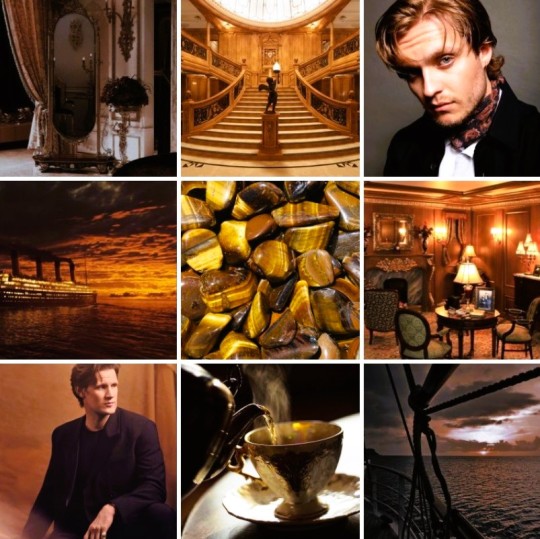
Series summary: Five years ago, jewel mining tycoon Daemon Targaryen made a promise in order to win your hand in marriage. Now he has broken it and forced you into a voyage across the Atlantic, betraying you in increasingly horrifying ways and using your son as leverage to ensure your cooperation. You have no friends and no allies, except a destitute viola player you can’t seem to get away from…
Series warnings: Language, sexual content (18+ readers only), parenthood, dolphins, death and peril, violence (including domestic violence), drinking, smoking, freezing temperatures, murder, if you don’t like Titanic you won’t like this fic!!! 😉
Word count: 5.7k
💜 All my writing can be found HERE! 💜
Tagging: @arcielee @nightvyre @mrs-starkgaryen @gemini-mama @ecstaticactus, more in comments 🥰
💎 Let me know if you’d like to be added to the taglist 💎
The taxidermied tiger head hangs above the fireplace in the sitting room, its jaws agape in a perpetual roar and its eyes polished spheres of metamorphic rock the color of dusk. Daemon shot it in Burma years ago—valleys of saturated green earth, mountain ranges like a crooked spine—shortly after opening his third black opal mine in Australia. You stare at the disembodied creature and she stares back, a silent scream, a doomed eternal terror in her tiger’s eye gaze: Help! A man is killing me. A man is taking me from where I belong. A man is nailing me to a wall so all the world knows he is the one whose bullet severed my aorta, filled me with hemorrhaging blood until I sank down, down, down.
You say, still looking at the slayed beast: “Did we really have to bring that with us?”
Daemon glances over as he fastens his cufflinks, onyx with red beryl in the shape of a three-headed dragon, the Targaryen family crest. “I’m sure you’d prefer a finger painting from that Italian tosspot you’re so enamored with. What’s his name, Pizarro?”
“Picasso. And he’s Spanish.”
“Even worse.”
You turn to Daemon, and you can feel yourself wilting, becoming pitiful, vulnerable, needy. “Where are you going?”
He smirks as he stalks past you. “Wherever I want.” Then he passes through the doorway and out into the hall, flanked by the ever-grim Edward Rushton, black suits and polished leather shoes.
It’s midday on April 12th, and you and Fern are now alone in the Targaryen staterooms. Laenor is down on F-Deck enjoying the Squash Racquet Court with his new Parisian companions, Rhaenyra is in the Reading and Writing Room with a group of ladies led by the Countess of Rothes, and Dagmar has taken Draco…somewhere. Meanwhile, your sweet-tempered maid is flitting around making beds and collecting empty cups and soiled linens. “Fern?” you call.
She peeks out of Draco’s bedroom. “Yes, ma’am? Do you need something?”
To leap overboard and swim back to Ireland. “Would you like to take a stroll around the Promenade Deck with me? Breathe some fresh air, look for dolphins and whales, have lunch at the Verandah Cafe?”
Fern is apologetic in that soft, skittish way that she has. “I’m so sorry, ma’am. I have to finish cleaning the rooms before Dagmar comes back.”
She doesn’t say why—that would be insubordinate—but you know. Just like on the family crest, the dragon has three heads: Daemon, Draco, Dagmar. All must be appeased lest their fire turn you to ash. And Fern lives in terror of the gaunt Scandinavian tyrant. “Right. I understand.”
“I should be done in an hour or two. When you return from your walk, I’ll make you tea.”
“You’re too kind.”
She is confused. “It’s my job, ma’am.”
“Still, I’m glad you’re the one doing it.”
Fern smiles, small and hesitant. “Thank you, ma’am. Enjoy your walk.”
Outside on the Promenade Deck, the sun is bright and the wind brisk, just warm enough to forego a coat, black mink or white ermine or grey rabbit or reddish fox, pelts harvested, creatures butchered. Your dress is a cheerful yellow, as if attempting to conjure the golden-haired magic of the Targaryens, their willfulness, their invincibility, their habit of bending the world’s truth in their hands until it snaps. Yet none of them are here with you; you are alone, you are unnecessary. As you walk, you pass women reading novels on teak deckchairs, children playing with spinning tops and dominoes under the watchful eyes of fathers and governesses, men smoking cigars as they debate business and politics and which gemstones they should purchase for their sweethearts. You have to get away from them.
You take the Grand Staircase up to the Boat Deck, the highest level of the ship, and to distract yourself you count the covered lifeboats that are stowed there. This does not assuage your anxiety; you see only twenty, and while you have made a practice of avoiding sailing and therefore are no expert on the issue, this does not seem like enough. You go to the railing—about as tall as your waist—and lean over it as you stare, thoughts troubled and brow furrowed, into the wild, uninterrupted blue of the North Atlantic, five hundred miles from the coast of Ireland. To your left is a man painting a sheet of paper clipped to an easel, a palette held in his hand, viscous globs of color from small silvery tubes. Seventy feet below where you stand is the sea, thrashing against Titanic, a wood-and-steel intruder. You lean a little farther over the side of the ship. The water is cold, you imagine; cold, deep, dark, silent.
If I fell in, this would all be over, you think. No more Daemon. No more anyone. The only people who would miss me are my parents, and they’ll never see me again anyway.
But no; you cannot abandon Draco. He’s a piece of you, even if he doesn’t know it. You cannot allow him to become a monster.
The viola player peeks out from behind his easel. “Not thinking about jumping, are you?”
You gasp, startled, and then cover your face as you groan. “Why are you always out here?!”
“Aw, fancy rock lady needs a member of the perpetual underclass to malign,” he says as he adds brushstrokes to his painting. He has procured a suit somehow—black, slightly too big for him, likely stolen—to better masquerade as a first-class passenger. “What’s the matter, rock lady? Did your servants not put enough sugar in your tea this morning? Did they tug a little too hard as they brushed your hair?”
“You’re not well mentally. You need a straightjacket.”
“I’m not the one about to throw myself into the Atlantic Ocean.”
You glare at him, bitter, defensive. “I wasn’t going to jump.”
“Then what were you doing?”
You can’t answer; you wring your hands and press your lips together so tightly they ache, watch dark smoke billow from the nearest funnel, coal shoveled into blazing furnaces, treasures of the earth extracted like teeth and consumed.
“Hey, I didn’t, um…” The viola player lowers his paintbrush, repentant. “It wasn’t my intention to upset you.”
You ask to change the subject: “What are you painting?”
“People,” he says, grinning, then turns his easel to show you. It’s a father holding his daughter so she can look over the railing and pointing to show her something out in the waves, dolphins, perhaps. His work is excellent, you are surprised to see: wispy curls of hair, irises alight with emotion, shadows and wrinkles and cheeks ruddy from gusts of wind, imperfections of reality.
“It’s good,” you manage once you’ve gotten your bearings.
“And of course you’re shocked.” He points to a scuffed brown leather portfolio resting against one leg of the easel. “I have plenty more, if you’re interested.”
You open the portfolio. There are men worriedly counting coins, women waiting on park benches, children beaming as they feed ducks or tend to their dolls, people giggling and scowling and burning up with clandestine longing, people sipping drinks in smoky pubs. In the bottom right corner of each painting is a moniker for the subject: Crystal, Big Red, Sunshine, Baron, Carnation, Tiny, Mars, Archer, Harpist, Pennies, Henry VIII, Belfast Belle. Unwittingly, you smile to yourself. “You give them names.”
“I watch people, but I don’t usually talk to them,” the viola player explains as he dabs thick oil paint on the paper clipped to the easel, treated to resemble the texture of linen. “I like to catch them unawares. Keeps the moment genuine, truthful. Otherwise they start acting for me.”
“Why paper instead of canvas?”
“Easier to travel with. Lighter and less bulky.”
You recall what he told Daemon at O’Connell’s Bar back in Galway: Well I’ve played all over Ireland, sir. All over Europe, in fact. You gingerly slide his paintings back into the portfolio and tease: “Who do you think you are, Picasso?”
He chuckles and shakes his head. His sand-colored hair trashes in the wind that blows off the ocean, salt and mist. “I am under no such delusion. I’ve met him, though.”
You gawk at the viola player. “You’ve…you’ve met Pablo Picasso?”
“Yeah,” he says casually. “In Barcelona. I love his Blue and Rose Period stuff. Now he’s doing some weird cubism bullshit.” The viola player shrugs. “I don’t know. It’s his art, he can paint what he wants. But I prefer something a little more…real.”
“I do too,” you confess. “I went to Paris once with my parents. I saw some of Picasso’s work in a gallery, but he wasn’t there at the time. I bought a few paintings.”
“Which ones?”
“Mother and Child from 1905. Flowers from 1901.” You hesitate. It’s a bit scandalous. “Blue Nude.”
But the viola player neither cringes nor makes a joke. “I remember that one,” he says softly, watching you. After a moment he asks: “Are they hanging in your rooms?”
“They’re in a trunk. Daemon doesn’t like them.” And the animosity in your voice is an act of treason, however small. You glance around for Daemon, Rush, Dagmar, Rhaenyra, Laenor, and thankfully find none of them. You avert your eyes, ashamed. A husband you hate, and fear, and obey, and lie awake at night conspiring how to please.
There is something that ripples across the viola player’s face—sympathy, distress—and then he resumes putting the final touches on his portrait of two unnamed passengers. “Do you paint?”
You laugh. “Very badly.”
He offers you the paintbrush, saturated with a reddish-gold color like dusk. “You can help me fill in the man’s scarf. That’s hard to fuck up.”
Your jaw falls open.
“That’s hard to mess up,” he amends.
Smiling shyly, you take the paintbrush and add a few tentative strokes to the scarf. The viola player accepts the paintbrush when you forfeit it.
“So besides making awful paintings, how did you spend your time back in Galway?”
Reminding my father who he is. Taking long walks through the fields with my mother. Sitting in the garden wondering how my life went so wrong. Trying to stop my only child from becoming a demon like his father. “I read a lot. Mostly Edgar Allan Poe, Jane Austen, and Shakespeare.”
“Shakespeare?” he echoes, amused. “Recite some for me.”
You take a moment to decide on a passage.
“Not for the world: why, man, she is mine own,
And I as rich in having such a jewel
As twenty seas, if all their sand were pearl,
The water nectar and the rocks pure gold.”
“The Two Gentlemen of Verona,” the viola player says, much to your amazement. He’s a thief holding a third-class ticket, and yet he’s learned. This is rare outside the blue-blooded aristocrats and the titans of industry. Fern can barely read and write.
“Where were you educated?”
“The world,” he replies, grinning.
“And the world included lessons on Shakespeare?”
“Sure, sometimes.”
“Alright then, let’s hear an excerpt.”
He considers this, tapping the handle of his paintbrush against his lips. Then he says:
“My crown is in my heart, not on my head;
Not decked with diamonds and Indian stones,
Nor to be seen: my crown is called content:
A crown it is that seldom kings enjoy.”
“King Henry VI,” you say, admittedly impressed. “I didn’t know poor people read Shakespeare.”
“Shakespeare’s plays were written for everyone, fancy rock lady. Standing tickets at the Globe cost pennies.”
You study the viola player as he paints, feeling a bewildering combination of curiosity, amusement, fondness. “What’s your name?”
He pauses as if he’s not sure what to say, then gives you a sly, crooked grin as he replies: “Picasso.”
Now a steward is approaching, and the viola player is alarmed, perhaps anticipating being revealed as a fraud and dragged back to the third-class accommodations; but the steward is only passing by with a tray full of champagne flutes, offering them to illustrious passengers as they stroll the decks. You take two glasses and he continues on his way. You down one flute in just a few gulps and offer the other to the viola player. He smiles politely but does not reach for it.
“Thank you, but I don’t drink.”
“Really?” Have you ever met a man who doesn’t? You can’t think of one. And you are suddenly aware of how quickly you finished your champagne—unladylike, improper, but surely no great disgrace in front of this audience—and how yearningly you’re already glancing at the second glass, carbonated amber, fool’s gold.
“I’m not someone who can stop at just one or two,” the viola player says. “I’ve learned that about myself. Tried to fight it for a while, turns out acceptance is easier. I hardly even miss booze anymore.”
“How long did you fight it?”
“Ten years.”
You are caught off-guard. “What? How old are you?”
“Twenty-three.”
Since he was thirteen? Can that be right? “We’re about the same age,” you say instead, taking a distracted swig from the glass that would have been his.
“Yeah,” the viola player agrees thoughtfully.
You finish the champagne and hand both glasses to a passing steward. “I should go,” you tell the viola player. “I don’t know where Daemon is on the ship, and…” I don’t want him to see us. I don’t want him to hurt me.
“Sure. I get it.”
“Good luck with your painting.”
“I’ll make one of you next,” he promises, and you’re certain he’s joking.
You smile and turn to leave. “Whatever you say, Picasso.”
You walk towards the Grand Staircase that leads back down to the Promenade Deck. As you pass the Gymnasium, you steal a glimpse through one of the windows and see them inside: Draco giggling as he rides the electric horse and yanks gleefully on the reins, Dagmar beaming as her gnarled, arthritic hands hold him by the waist so he doesn’t slide off.
You lay your palm against the cold glass, separated by a few steps that might as well be miles, wreckage peering up through the darkness from the bottom of the sea.
~~~~~~~~~~
Fern helps you dress for dinner: a glittering gold gown, a tiger’s eye amulet from Burma. Laenor has brought a companion, one of the Parisians he’s become so well-acquainted with, a count’s son named Hugo. As Laenor is preoccupied, Daemon escorts Rhaenyra to the First-Class Dining Saloon down in D-Deck. They meander together, her arm linked through his, murmuring gossip about the other passengers and snickering contemptuously. You trail behind them, feeling invisible, a sun that casts no warmth.
All around you are other first-class passengers descending the Grand Staircase: Benjamin Guggenheim and his mistress two decades his junior, John Jacob Astor and his pregnant eighteen-year-old wife, railroad tycoons Charles M. Hays and John B. Thayer, steel industrialist George Dennick Wick, the glamorous Countess of Rothes, the newly-wealthy Margaret Brown, the eminent journalist W.T. Stead, the White Star Line’s managing director J. Bruce Ismay. But your gaze keeps drifting to Macy’s department store owner Isidor Straus and his wife Ida, neither young, neither beautiful, and yet so evidently devoted to each other. You wonder how that feels; surely nothing like a bruise, a reproach, a back turned to you in the marriage bed.
On the A-Deck landing of the Grand Staircase is the viola player, his horsehair bow gliding over four thick strings to loose an energetic, jubilant song, standing there in his suit that no one else notices is too big for him because they don’t really see him at all. He is less than a fixture of the ship; the first-class passengers marvel at the glass-and-wrought-iron dome overhead and the Neoclassical clock on the wall and even the bronze cherub statue at the base of the steps, but the flesh-and-blood machinery of Titanic wears a sort of camouflage, unremarkable and interchangeable, uncomfortably human. The viola player gives you a wink and a quick, subtle smile as you pass by him, and you smile back. And for a moment, it is like you have a friend aboard the ship, a groundswell of fleeting joy, gratefulness, peace.
Dinner is oysters, salmon with hollandaise, corned ox tongue, chateau potatoes, asparagus soup, Waldorf pudding, other things that you pick at without much interest. You miss Lough Cutra Castle, you miss your parents, you miss Ireland, you miss your life before Daemon Targaryen stalked into it with his ever-glinting green eyes and his talent for making you so desperate to satisfy him. Instead of eating, you mostly drink champagne, draining glasses of it until your cheeks are warm and your thoughts hazy. You look around for the viola player, but he never appears in the First-Class Dining Saloon. Instead, the five-piece string ensemble that welcomed you aboard Titanic yesterday is playing Alexander’s Ragtime Band.
Daemon has invited a guest to share your table, chief designer of the ship Mr. Thomas Andrews. He is gracious and even-tempered, exactly the sort of man Daemon likes to entrap and enchant and have his way with. As you drown in champagne, Daemon tells Mr. Andrews about surviving a hurricane while mining Larimar in the Dominican Republic, domesticating a ring-tailed lemur in Madagascar (Daemon had named it Aegon and kept it on a leash), getting lost for three days in the Australian Outback and resorting to eating snakes and dingoes, bludgeoned to death with rocks and roasted over campfires. Rhaenyra observes all of this with a proud, radiant smile, encouraging Daemon with nods and oddly girlish giggles. Laenor, meanwhile, is chatting with Hugo and paying little attention to anything else. He and Rhaenyra have three young sons back in England, though they resemble Laenor Velaryon far less than they do Harwin Strong, Viserys the Duke of Beaufort’s former Master of the Horse and Rhaenyra’s rumored lover. The virile, dark-haired Harwin Strong was killed last year in an unfortunate riding accident, whereupon Daemon rekindled his previously strained relationship with Rhaenyra in the interests of helping her cope with the loss. As it turned out, Daemon’s niece had grown up to be much the same as he is—daring, sarcastic, charismatic, incorrigible—and as if you didn’t have enough difficulty winning his affection before, now you must compete with his kindred spirit, a golden-haired wildfire only a few years older than you and who Daemon can delightedly torment his estranged brother with by capturing her in his orbit.
Daemon is saying, his elbows on the table and miming clutching a massive gemstone in his palm: “As a famed French fashion critic once wrote, The jewel, which is so well adapted to a woman’s adornment, is a combination of the riches of nature and art.”
“Not just any fashion critic,” you say without thinking, the champagne parting your lips before you can reconsider. “Charles Blanc. And I’m the one who gave you his book, remember? It was one of my wedding presents to you.”
Everyone turns to stare at you, as if abruptly being made aware of your existence. Laenor and Hugo appear puzzled. Rhaenyra is frowning with disapproval. Mr. Andrews nods politely. Daemon, after a moment, chuckles in that low, rolling, sardonic way that he does.
“Yes, dear, you certainly did. Clearly it made an impression.” He looks to Mr. Andrews. “You’ll have to forgive my wife, good sir. I’m afraid she has a weakness for champagne.”
“Don’t we all?” Mr. Andrews replies diplomatically.
“The truth is,” Dameon says as if he’s confiding in the shipbuilder; and yet there’s an exhilaration he can’t entirely disguise, a malicious triumph, proof of the power he has over you. “She’s petrified of sailing, has been for years. And this journey…well…it’s been quite an ordeal for her. But under no uncertain terms was I leaving Ireland without my family. Where I go, we all go.”
“I’m so sorry to hear about your rattled nerves, Lady Targaryen.” Mr. Andrews’ eyes are soft with pity for you, a neurotic and illogical woman, tortured by her own nature. “Is there anything I can say to alleviate your fears? Have you been on a ship that’s run into trouble before?”
“No, no sir, I just…” You push through the warm, amber-gold fog of the champagne to explain. “I’ve never been able to stop thinking of all the water beneath us, and a ship…even one as large and luxurious as Titanic…it seems too vulnerable to me. One puncture and we all go straight to the seafloor.”
“That’s why I built Titanic with watertight bulkheads that go up to E-Deck,” Mr. Andrews says, smiling reassuringly. “There are sixteen total, and the ship can stay afloat with several of them flooded. This is meant to contain any possible breach in the hull.”
“Oh, how ingenious!” Laenor exclaims. “Hugo, isn’t that extraordinary?”
Mr. Andrews continues: “Truly, Lady Targaryen, I have built you an unsinkable ship. You have nothing to worry about here on Titanic.”
“Of course she doesn’t,” Daemon agrees.
“And there are lifeboats, I suppose,” you say. “Although…I didn’t see very many up on the Boat Deck. What is their total capacity, I wonder…?”
“Over 1,000 souls, ma’am,” Mr. Andrews replies.
You are horrified. “That’s half the people onboard.”
“Yes,” he concedes. “But as I said, Titanic cannot sink.” Again, he smiles blithely. “Besides, in the event of an evacuation—engine failure or damaged propellers or some such thing—the lifeboats would only be needed to ferry passengers from Titanic to the vessel we’d hail to rescue us with the wireless telegraph machine. The lifeboats were never intended to be able to hold all the passengers at once, that would be absurd.”
“Impossible,” Daemon concurs. “What on earth would necessitate a swift and total evacuation?”
“What about an iceberg?” Hugo says as he eats a heaping spoonful of Waldorf pudding, vanilla custard mixed with nutmeg, apples, walnuts, and raisins.
Mr. Andrews titters patiently, as if this is the most ludicrous thing he’s ever heard. “No iceberg could damage Titanic enough to flood more than three bulkheads. And we have lookouts employed to spot them and sound the alarm so we can turn in time. Icebergs are not a concern whatsoever.”
“Très bien!” Hugo declares, redirecting his full attention back to his Waldorf pudding.
Mr. Andrews looks to you, his voice kind but patronizing. “Do you feel better now, Lady Targaryen?”
“Much better,” you lie.
“Good. Then no more worrying. And no need to drink yourself under the table either.”
Daemon says with a derisive snort: “Well, she is Irish.”
Everyone laughs; everyone but you.
~~~~~~~~~~
Back at the Targaryen staterooms, Rush is waiting by the door to take your coats. Laenor and Hugo bid everyone goodnight, then depart; Rhaenyra, seemingly reluctantly, takes her leave as well. She and Laenor have separate accommodations as they always do while travelling, not unheard of among first-class passengers but also not helping to dispel the rumors concerning her sons’ parentage.
Dagmar is perched on one of the sofas like a falcon on a branch, her talonlike fingers knitting a forest green blanket for Draco. Your son, meanwhile, is sprawled on the sitting room floor and at war with Fern, who is trying to coax him out of his shoes and day clothes and into his pajamas.
“Draco, please, my love, it’s time to get ready for bed now—”
“I want to go back to the Gymnasium!” he screeches, wriggling out of her grasp. From the sofa, Dagmar chuckles as if this is charming behavior, a portent of superb athletic fitness, perhaps. “I want to ride the horsey!”
Fern is exasperated. “Darling, the Gymnasium is closed, no one is allowed to use it any more tonight. But I promise you’ll be able to go back tomorrow—”
“No!” Draco shrieks. “Now! Right now!”
Fern finally manages to slip off one of his shoes, and faster than anyone can stop him, Draco draws back his hand and slaps her across the face, open palm, a sharp crack in the air, and of course he’s too young and too weak to do anything but stun her, but he won’t be four years old forever.
One day he’ll be able to hurt people. He’ll be able to break them, bruise them, ruin their lives.
“No!” you shout, then bolt to Draco and drop to the floor to hold him by his frail little shoulders, firm yet careful not to harm him, no scratches, no bruises, no pools of trapped blood that will ache with violent memory. “You never do that! You don’t hurt people! You don’t hit women!”
“Mam?” Draco whimpers, his lips quivering and tears shimmering in his eyes; and he almost never calls you that, he almost never acknowledges you as his mother at all. But he knows, he must, this proves it. “I’m sorry…I won’t do it again…please don’t yell at me…”
Immediately remorseful, you embrace him, and Draco clings to you as he sobs. Fern is watching you with huge, frightened eyes; then they flick to someone standing behind you.
Rush grabs you by both arms and wrenches you away. You yelp in shock and pain; Dagmar swoops in to take Draco and vanishes into his bedroom, glaring at you over her shoulder, frigid lethal fury. Fern is covering her mouth with her hands so she won’t scream.
Rush hurls you to the carpet and backs away. When you look up, Daemon is standing in the doorway of your bedroom, orange dusk-like light spilling out from behind him.
“Come here,” Daemon says, beckoning you with his right hand.
You are terrified; you are shaking. “No.”
“The longer you wait, the worse it will be.”
“No,” you say again. You glance at Fern, but she can’t help you; she turns away, stifling a cry with her palms. The room is spinning, your thoughts are slow, your skull aches with rhythmic pulses like blows from a hammer. You peer up at Rush, blinking blearily. “Do you like working for a man who beats his wife?”
Rush doesn’t reply; his face is grave but otherwise unreadable. Fern curls up on the floor, shaking her head. The taxidermied tiger head roars silently from above the crackling fireplace.
Daemon says from the doorway: “Dear, I’m losing my patience.”
There’s nowhere else to go. You crawl towards him, then at the halfway point stagger to your feet. Daemons steps aside so you can cross through the threshold. He closes the door and locks it. You stare at him, swaying a bit, your hands hovering in front of you. You’re trying to figure out where he’s going to hit you, but he’s good at not letting on, and you’re drunk. You guess stomach, but it’s your face, just like Draco struck Fern; his open palm sets your cheek on fire and rocks your head back. You lunge for him, fingers clawing and knuckles jabbing at his ribs. Sometimes you fight back and sometimes you don’t—occasionally he finds it endearing and leaves you alone, more often it exacerbates the situation—but tonight you are overwhelmed with wrath for this man who has taken everything from you, your home, your parents, your son, your future.
You shove Daemon into his writing desk, then he pins you to the wall, slides open a drawer of the desk with his free hand, pulls out his gemstone-studded dagger and lays the blade against your windpipe. And you scream, because for all his roughness and his threats Daemon has never done this before. No one appears to rescue you; no one would dare.
“You will not correct Draco,” Daemon says. “He is my son, and I will deal with him.”
You seethe, teeth bared: “I don’t want him to be like you.”
“Think about it, dear,” Daemon hisses, the blade cold against your throat. You can feel it stinging, a thin slice like a papercut you’ll have to cover with makeup tomorrow. “We’re on a ship in the middle of the Atlantic Ocean. If you were to take a tumble over the railing, who could say if it was an accident or a suicide or a crime of opportunity committed by some third-class scoundrel? There would be nothing to investigate. You would be gone, and that would be the end of it. Draco is past the fragile years of infancy, he is healthy and he is fierce. Your father’s quarry is already under the control of my managers. What do I need you for now? Why the fuck would I tolerate any further obstinance from you? Your usefulness has come and gone. You stand on the thinnest of ice. One wrong step, and you’ll find it splintering beneath your feet.”
He lifts the dagger away and strides out of the bedroom. You stand there in the tawny lamplight like a sunset, trembling all over, gasping for air, your hands flying up to your neck. When you check your fingers, they are sticky and copper-smelling with a small amount of blood.
He could have killed me. I think he wanted to.
There is a tall oval mirror by the bed, its frame gilded and glowing in the ochre lamplight. You stare at yourself, tears flooding down your cheeks, a gold dress worth more than you are. Everything you own is Daemon’s. That will be true for as long as he lives.
You flee out onto the small private deck attached to your rooms, through the back exit, and into the labyrinthian hallways of B-Deck. You run towards the stern of the ship, dodging stewards who ask if you need assistance and men sauntering back from the First-Class Smoking Room after dinner, puffing on their pipes and their cigars, nursing stout glasses of brandy to keep them warm. When you break out into the open air, it is bitterly cold. The ocean is a vast lightless void; you could mistake it for nothingness if it wasn’t for the thunderous rumble and salt spray of the waves. Your gleaming gold dress billows around you as you sprint to the metal railing that encloses the stern, grip the top rung with shaking hands, stare down into the roiling depths churned by the propellers.
Where can I go? There’s nowhere to go. There’s nowhere else to run to.
“Hey,” the viola player says; you recognize his voice immediately.
You turn away, not wanting him to see the swelling on your face, the traces of blood at your throat. You are heartbroken, you are humiliated. You agreed to marry a man and now he’s ruined your life. You wrap your bare arms around yourself and sniffle, shivering, swiping tears from your eyes.
After a while, the viola player says cautiously, realizing you aren’t in the mood for disclosures: “It’s cold tonight.”
“Obviously.”
He takes off his black wool coat, presumably stolen like the suit he wears underneath, and offers it to you. “I have more layers on.”
“I don’t want you to be cold.”
“Please shut up and take the coat, okay?” You accept it and put it on, and instantly you begin to feel better. The viola player asks gently: “Does he hit you?”
You shrug, petulant like a child. “Sometimes I hit him back.”
The viola player sighs, but he’s not just disappointed; he’s saddened, he’s pained. “Look, I know what it’s like to get knocked around. That’s why I left home.”
You remember what he told you when you first realized he’d followed you onto Titanic: I have family in New York City. I left home and haven’t been back in years, and I think now’s a good time for a visit. “Why would you ever want to see them again?”
“Things are different now. I’m older, I’m not afraid to walk out and be on my own, I’m confident that I can advocate for myself better than before. And they aren’t all bad. I have…” He hesitates. “I have two brothers and a sister in New York, and I miss them.”
“What are their names?”
“Um,” he stops to think. Clearly he’s making them up. “Arnold, Henrietta, and Dean.”
“Do you actually have siblings or is this some sort of metaphor?”
He laughs. “No, they’re real. The names might not be, but the people are. Want to see your painting?”
“You were serious?”
He carefully pulls it out of the brown leather portfolio he’s carrying under one arm. And if it’s supposed to be you, he’s failed, but still the image is mesmerizing: a young woman—too beautiful, far too beautiful—glancing over at him from where she was pondering the waves under a clear midday sky, her hair in disarray from the wind and her eyes fearful, an oil-paint snapshot of desperation, defenselessness, wonder, hope.
“It’s very nice,” you say at last. “But I don’t look like that.”
“Yeah you do.”
You examine the bottom right corner of the painting to see what he’s named you. You skim your thumbprint feather-lightly over black cursive letters, drawn with the smallest of brushes. “Petra,” you murmur.
The viola player says self-consciously, as if hoping you’ll approve: “It’s Greek for rock.”
You smile faintly. “I know what it means.”
“Oh, fancy rock lady took Greek lessons in school.”
“Of course I did.”Greek, Latin, French, Irish Gaelic. You muse softly, still studying the painting: “Petra and Picasso.”
You don’t have to look at him; you can hear the grin in his voice. “Guess we’re friends now, huh?”
“I’ve never had a poor friend before.”
“Well, firstly, you can’t call me your poor friend. That’s offensive.”
With great unwillingness, you surrender the painting and give it back to the viola player. “I can’t keep this. I’m sorry, I want to. But Daemon might find it.” And then he’ll push me overboard and I’ll be dinner for the sharks.
He tucks the painting safely into his portfolio. “I’ll hold onto it for now.”
“Forever, you mean.”
“You might not always have to worry about Daemon.”
You share a dark, horrible truth: “I’ll never be free of him.”
“We’ll see,” the viola player replies, undaunted.
We’ll see.
#aegon ii targaryen#aegon targaryen#aegon targaryen ii#aegon ii#aegon targaryen x reader#aegon x reader#aegon x y/n#aegon x you#aegon ii targaryen x female reader#aegon ii targaryen x reader#aegon ii x y/n#aegon ii x you#aegon ii x reader
182 notes
·
View notes
Text

Flora Lop Rabbits 🐇 ♥️
2023 JP, 2024 US/UK
Nolan, Aria, Lennon, Alice, triplets Rosemary, Thyme, Sage.
Not pictured: twins Runo & Viola, standing baby
#calico critters#sylvanian families#toys#toy collector#shilohscollection#toy community#toy photography#rabbits#lop rabbits#flora rabbits
54 notes
·
View notes
Text
Whitney Theory Time

[CW- talks about mental health, child neglect, random character analysis and unnecessary deep diving into little details (lol)]

I went down a little rabbit hole pertaining to Whitney’s oral fixation. I have known that when something is brought attention to constantly during any story, then it’s not a simple coincidence. I feel like (how Sydney said in the library) that Whitney has a lot going on. And it’s probably not good. I feel like their back story will be very angsty and sad.
So as someone who has studied psychology for a while, I found this…and I feel like I hit the nail on the head (for those morbidly curious like me this is Freud’s theory on oral fixation…and yeah don’t judge me for going all Freudian analysis on Whitney/silly)
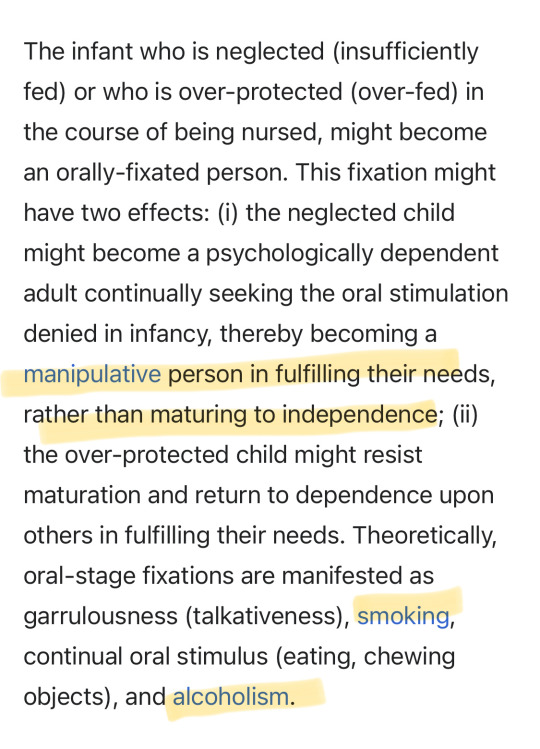
So chances of our Whit being a neglected child are very high. But from their general appearance in the game (m!whitney wearing a blazer and f!whitney wearing a long school skirt. Both items are on the costlier side in game) I feel like they come from a well off family? the general hate towards the privileged people they hold, points to either them living a life of privilege but they are so miserable they want to escape? (Tbh their whole schtick sometimes gives rich kid doing all kinds of weird stuff trying to get attention from their absentee parents trope)
Or maybe used to be a part of a well off family? I feel like they are not being able to cope with the sudden change in their lifestyle if this is the case. Thus are trying to sell this fearless image of themselves.
And Is it just me or do you find it weird too that although Whitney is sent to detention Leighton almost never does anything to Whitney besides scolding? I feel like they do come from a powerful background. Otherwise why would all these lackeys follow them around?! And they own a phone to top it all off. I know all the other NNPCs have a phone too but amongst the LIs only Whitney (and Avery) owns a phone?!
The lowkey neurotic and manic tendencies they have towards PC also screams of separation anxiety. (Ahem collection of stuff toys?) For example, them needing to control PC at all times. Their love stat going high only when PC willingly chooses to act on their every whimsical/cruel wishes, them wanting to tattoo their name on PCs face of all places, not being able to be more open/ vulnerable with PC because they feel that PC might leave them.
And their dismissal event also shows just how much their image matters to them, and why they crave to be in control. This is yet another trait they share with Avery, when on low dominance, you can see how humiliated they get whenever PC fights back with them. Add insecurity about looks on top and viola, you have some deep childhood issues (I love complex fully fleshed characters so much)
Also the not being sufficiently fed during nursing part (I’m referring to the picture above) makes me think that the Headcanon about their parents being divorced and maybe their mom moving out at a very young age, seems like a possibility. Hence Whitney not being able to withstand emotional cheating seems like a result of that (I’m just spitballing here…)
So yeah. Thank you for coming to my Ted talk. I feel good after hyperfixating about a fictional character.
[Bonus Angst Headcanon] I like to imagine, if it indeed turns out that Whitney lives in some mansion with their dad, and their mom left when they were young, why do I get a feeling that their mom left them/ said goodbye to them near the water fountain on a rainy day. Them just staring into the fountain with a solemn mood, feels like there is a definite reason behind it. Or maybe they used to come to the fountain and make wishes with their mom? (Yes I like to torture myself with sad thoughts)

#ashewrites📝#flâneur✨#my words💜#tête à tête💜#random thoughts#degrees of lewdity#whitney dol#dol#whitney the bully#rambles
79 notes
·
View notes
Text
Sea rabbit is MY best friend >:[
Viola: waves to the NPC Floyd: pushes the NPC and stands in his place Floyd: Sea Rabbit~ happily waves back at her
#twisted wonderland#twisted oc#disney twisted wonderland#twst wonderland#disney twst#twst oc#twst yuu#oc twisted wonderland#yuusona#my ocs#oc posting#twisted wonderland oc#original character#viola#twst viola#floyd leech#twst floyd#twst floyd leech#twst incorrect quotes
22 notes
·
View notes
Text
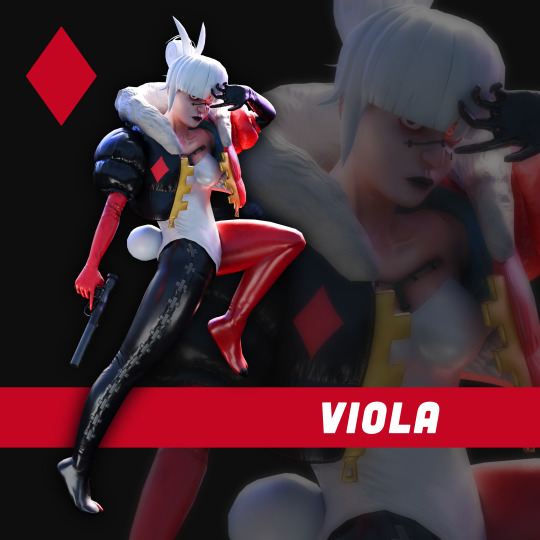

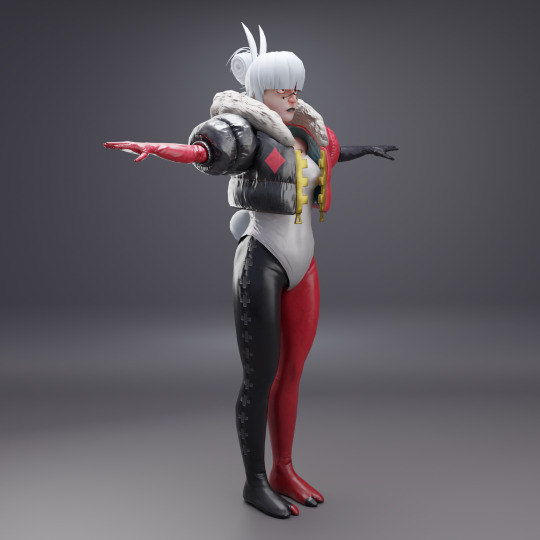
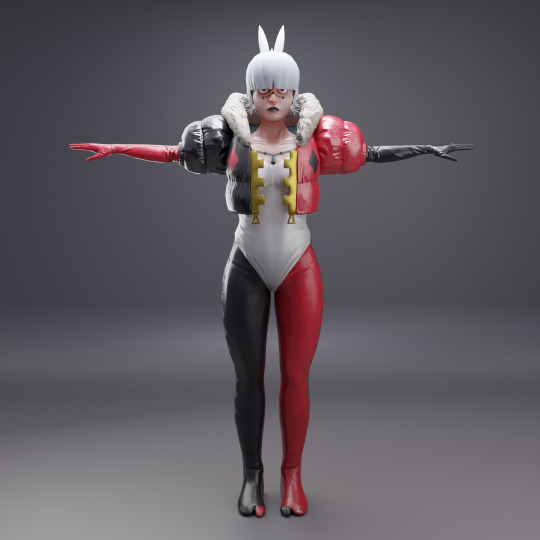

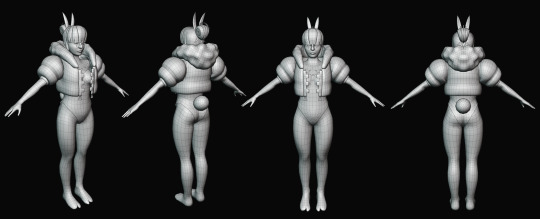
Viola ! My newest oc :-]
Her lore is that she used to be some kind of test subject (like a test rabbit. you get it.) and is really mad about it. she/they.
103 notes
·
View notes
Text
im absolutely obsessed with how burrows end incorporates philosophical topics !! especially with ethics !!
i just keep thinking about tula’s statements about whether they should still eat rabbits if they could talk and beg for their lives. like that is a HUGE argument in environmental ethics !! and it’s approached in a way that is soooo approachable and genuinely interesting !! like yes omg philosophy is so cool and SO relevant !!
and other times the family questions their own morals when it comes to outsiders versus their family. a lot of people believe in objective morality (there are set things that are right and wrong) but many people would do things to strangers that they wouldn’t do for their family and vice versa — like what duties (if any) do we have to other people, and does it matter if we are closer to them or not ?
even the conversations between viola and tula about having children in dangerous times ! that’s also a massive concern in environmental ethics — do we have any responsibility to future generations, to bring them into creation or make things better for them ?
i love this show so much and i love looking at it through the lens of a philosophy student because it brings up so many issues !!!
#burrow's end#tula my beloved#ava burrow’s end#burrows end#dimension 20#jaysohn burrow's end#lila burrow’s end#thorn burrow’s end#tula burrows end#viola burrow's end#philosophy is so cool guys !!#im obsessed with this campaign and i love these stoats#philosophy#ethics
65 notes
·
View notes
Text

hairstyling
657 notes
·
View notes
Text

Jellycat of the Day | 2nd June 2024
↳ Bashful Viola Bunny (medium)
#bashful viola bunny#jellycat#jellycats#bashful bunny#bashful bunnies collection#rabbit plush#bunny plush#soft toy#stuffed animal
43 notes
·
View notes
Text

Viola, here is an older version of Prismatic, 16+ years old. Basically his cracked arm completely broke, the only thing connecting it is rainbow magic. Prismatic wears special black gloves to control the magic with his arm. He practically has the similar abilities as color and delta. This was so lazy-
Story:
Young Prismatic had to transfer school due to bullies. At that school, he meets Aer, Origami and Stärke. Very soon, he will have a new younger sister named Sunny.
14 years old: School bullies started to pick on Prismatic and his friends. The bullies made fun of Origami’s inability to speak and often pulled Aer’s knock-off wings to mess with him. They really crossed the line when they attacked Origami and Stärke. Stärke fought back and ended up chasing after three of the bullies as they ran away. Aer went to get the teachers. The last two picked and pushes Prismatic at his cowardice and how weak he is. Hitting his already cracked arms was the last straw as Pris suddenly bursted “I AM NOT WEAK”. Origami was in shock, he didn’t knew Prismatic had that in him. At that moment, Prismatic’s arm exploded as flaming rainbow magic flared in all its might and glory. Prismatic threw a fist at the two bullies, burning their faces while leaving ugly bruises. Of course, all the bullies were sent to the emergency room since Stärke absolutely busted the three bullies who ran away. Prismatic and Stärke both got suspended for 2 weeks while Origami went to the nurse with Aer’s help. Getting home, the teachers had to talk to Delta and Color about their son’s behavior. The two told his teacher they would talk to him, and the teacher her left. Prismatic explained everything and how his arm exploded. Color and Delta decides not to lecture him too harsh, understanding that what Pris did was of good intention but he could’ve been less violent.
Color and Delta for no less than surprised, because Prismatic had never come out of his shell like that before. All his childhood, Prismatic’s parents had tried to teach him to be more brave, but he just wouldn’t step out of his shell. Now that he did, Color and a Delta wants to encourage him to grow and become stronger. Every day after school since that day, Prismatic would train with Delta and Color, building his skills and learning to control his new-found abilities better.
16 years old: a whole two years of training and support from friends, Prismatic has a huge shift in his personality. Once a shy and frail boy is now a powerful and just teen who isn’t afraid of sticking up for the weak. He is unrecognizable to say the least. He is better at managing his emotions now and may actually appear cold normally due to his nonchalantness, but he’s really just calm and unbothered.
Personality: He is much more stable now, both mentally and with his powers. He is usually very calm and will always be open to lend a helping hand. He cannot stand injustice (his childhood trauma) and will stand up for what his believes in. He is open to new ideas from other people and will listen intently. At first look, he may appear cold, but he really isn’t, he’s just nonchalant most of the time. He is very very brave and is not afraid to take risks in order to do something “right” or protect someone.
Relationships: He is very close with his parents since they had been his support system, but one thing he wishes Delta could understand is that it is okay to cry. He also wishes Color to not be so protective. He has a good relationship with his younger sister, Sunny, always setting a good example to her, though he is not afraid to lecture her when he does something wrong. He is still friends with Aer, Stärke, and Origami, and through Stärke he is able to become friends his the Cream family (Dream x Cross family), specifically Hope.
Likes: friends, justice, cats
Dislikes: injustice, betrayal, rabbits (he’s afraid of rabbits)
PS- Someone broke his visor when he was younger so he used the remaining pieces to make a new one out of magic
Prismatic belongs to me
Color! Sans belongs to @superyoumna
Delta! Sans belongs to AnimatedZorx
Aer belongs to @pepper-mint
Origami belongs to @pepper-mint
Stärke belongs to @pepper-mint
Hope belongs to @pepper-mint
Dream! Sans belongs to @jokublog
Cross! Sans belongs to @jakei95
#color x delta#delor#delta x color#prismatic#prismatic sans#stärke#origami sans#Aer sans#ut aus#sans aus#sanscest#ship child#sans au ship child#cream ship#hope sans#lux sans#lux#starcross sans#Starcross#dream x cross#cross x dream#delta sans#color sans#dream sans#cross sans
8 notes
·
View notes
Text
Cecil is listening to the music.
It’s such a lovely, pleasant orchestra, his house at night. He could listen to it 𝑎𝑙𝑙 night.
The rhythm of the stars sparkling in the sky, the French horn of them playing bright and warm, metallic and twinkling, rich and velvet. They fill the night, light up the dark, give the moon’s tuba an accompaniment. The brass above their head is so beautiful.
The night air is woodwinds, ringing like the windchimes Esteban made out of rabbit bones and jingle bells and streamers, hanging on their front porch. When the breeze moves along, the flutes sound; when the temperature cools, there is a saxophone in the distance. The wisps of clouds that gather above, the mist that slinks along the ground, are clarinet and bassoon; they fill those small gaps in the sound.
Night Vale is nearly a cacophony— it is almost chaos— but it is just enough to make sense. The streets are paved with piano keys; they make sweet music whenever someone takes a step outside. His neighbors are pipe organs, harps, keyboards, harpsichords, a medley of music that fits into odd angles and breaks off in pieces and still becomes a puzzle-picture all the same.
Their home is all the string, strung up around him in lingering notes. The walls are built on violin; the foundation of the house is a double bass. The light fixtures are low, dark, humming with cello. Everywhere there is the comfortable, crowded, familiar feeling of home, and it is carried along by the viola.
Esteban is his percussion section, his joy, his enthusiasm made whole, his heart outside his body. His passion is his snare drum; his curiosity is his timpani; his devotion is his cymbals. Cecil can hear a tambourine in his son’s energetic exclamations, and there is a pounding bass drum behind his skin, a power he is still growing, that rises in tempo all the time.
Carlos is a whale song. The frequencies are plentiful, beautiful; there are layers to the music inside of him. He is patterned, and he is rhythmic, and he is something that can both be explained and cannot. He is sonar; he is undersea; he is from the beginning of time, and will last until the end. The ringing call of him echoes through Cecil’s mind, an accompaniment to the orchestra around him as he curls into Cecil in bed, face buried in his throat, arm wound around him, legs tucked into his, a hand planted on his belly. His breath spreads warm across Cecil’s heart; the song is built of familiarity and love. Family.
There is such an orchestra around him. He’s not sure he is the composer— he’s not sure there is a composer— and it’s so beautiful, all the same. Maybe even more beautiful for it.
And all these sounds— the sky, and the city, and their home, and their son, and his husband, and his music— all sing together into a symphony, a philharmonic, incredible and impossible. Cecil closes his eyes and hums along.
He, himself, has a tone all his own. He has his own music that is inherent to him; his chest rings, and his heart has its own timbre, and it shivers through his insides in metronomic time with the songs around him. His tone falls in time with everything else, and it slots so perfectly into place, Cecil sighs— and the low rumble of his voice— 𝑇ℎ𝑒 𝑉𝑜𝑖𝑐𝑒— just serves to complete the fragment of the orchestra his tone contributes.
And then, of course, the new tone.
He listens to it with pleasure and delight. Late at night like this, when Cecil can turn his eyes inward and listen to his own heart-tone and blood-rush and thought-crimes without anyone else noticing, it’s so much easier to hear his own music— and deeper, too. To hear his newest tone, the timbre that nearly matches his own, but— brighter. Lighter. An octave above his, shimmering, not quite opaque, still forming its part of the song.
And still such a lovely part of the chorus. Like it was always meant to be here, fitting into the orchestra, chiming away beneath Carlos’s hand.
Cecil lays his own hand over the back of Carlos’s. The tone rings and sings in response, and Cecil realizes what has pitched it away from his own— it’s Carlos’s song, the waves of his whale song, melted into the pitch.
Together— altogether— all, together— it is such sweet, beautiful music.
Everyone is asleep. The city around them, Night Vale resting; Carlos beside him, tucked into him; Esteban between them, wriggled in after waking up halfway through the night; and the rest— the night air, the sky, the stars, the moon, the neighbors, the foundation, the home, the bed— until they meet the tones and surround them.
Cecil listens to the music. It’s so beautiful. He could listen to it forever.
He tightens his grip on Carlos’s hand, sighs, and relaxes into the sound. Even if he’s struggling to get comfortable enough to sleep, still sick enough to feel miserable and restless— he’s never so uncomfortable that he can’t find comfort in Carlos.
The music flows around him, through him, and manifests itself into radio waves. They shimmer around him; the music is audible, and he listens with delight to the manifestation of the song. It finds its way through the air, the rhythmic air, the musical air, until it sings through the radio tower and into the speakers throughout Night Vale.
Cecil doesn’t even notice. He’s half-asleep, with radio waves singing around him, in between conscious and not, and listening to his new favorite song. And everything—
Everything feels 𝑟𝑖𝑔ℎ𝑡.
#solos#story threads#solo#thevoiceofnv solo#thevoiceofnv#wtnv#wtnv cecil#cecil palmer#cecil gershwin palmer#welcome to night vale#carlos the scientist#my first tumblr solo!!#look at me!!#rp#wtnv rp#cecil palmer rp#roleplay#welcome to night vale rp#cecilos
14 notes
·
View notes
Text

Okay so I may have went down a small rabbit hole of Twelfth Night and Jesus this it’s quite gay, many a Shakespeare is.
But yeah here’s Olivia/Viola|Cesario
13 notes
·
View notes
Text
Who's Next?
The next household we'll visit for rotation 9 is...

The Chopra Household
Enthusiastic gardener and firm papa Rahul
Music icon and satisfied mama Cassandra
First born fussy queen Savannah
Imaginative and aggressive twin Mercedes
Just here for the milk, infant Viola





Of course this family have a Noah's ark situation so you will also see
White Rooster, His Most Noble Highness Cluckton the First
2 Black hens, Mrs Feathers and Floofy jr
2 Brown hens, Squidge and Snuggles
Mini sheep Seven
Mini goat Turtle
Several wild rabbits, Binky, Boo and Bounce




20 notes
·
View notes